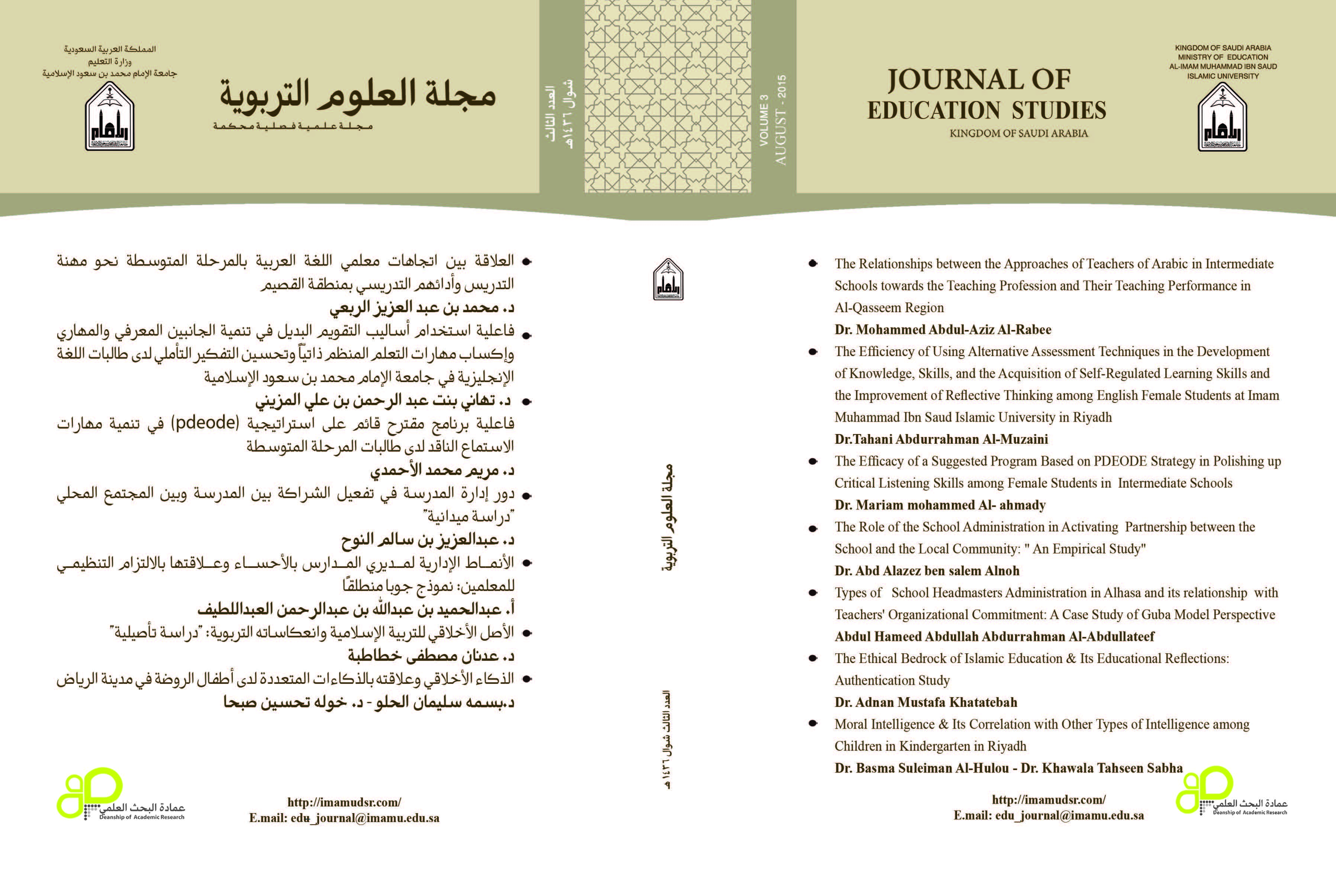The Efficiency of Using Alternative Assessment Techniques in the Development of Knowledge, Skills, and the Acquisition of Self-Regulated Learning Skills and the Improvement of Reflective Thinking among English Female Students at Imam Muhammad Ibn Saud Islamic University in Riyadh
Abstract
This research aims to identify the effectiveness of using alternative assessment techniques in the development of knowledge, skills, and the acquirement of self-regulated learning skills and reflective thinking improvement among female students of English at Al- Imam Mohammad Ibn Saud Islamic University, Riyadh. To this end, the researcher used the Quasi- experimental approach& applied one of the quasi-experimental designs which is One group Pre-Test, Post–Test Design. The research participants were 67 female students who were enrolled in the English program at the College of Languages &Translation at Al-Imam Muhammad Ibn Saud Islamic University of the academic year 1433-1434AH. In order to measure the pre and post performance of the knowledge, skills, self-regulated learning, and reflective thinking of the participants,the researcher prepared the following research tools: 1)Achievement test, 2)Assessment skills rubric,3) Measurements of self-regulated learning and 4)Eysenck&Wilson Reflectiveness Scale. The results of this study indicate the following findings: 1)There is a statistically significant difference between students' average score in the achievement test in the pre-test and the post-test, where they scored higher on the later. 2) There is a statistically significant difference between students' average score in all assessment skills and the total score of assessment skills in the pre-test and the average score of the post-test,in which they scored higher on the later in all cases. 3)There is a statistically significant difference between students' average score in the total score of self-regulated learning of the pre-test and the average score of the post-test, where they scored higher on the later. 4) There is a statistically significant difference between students' average score in the total score of reflective thinking of the pre-test and the average score of the post-test, where they scored higher on the later.




